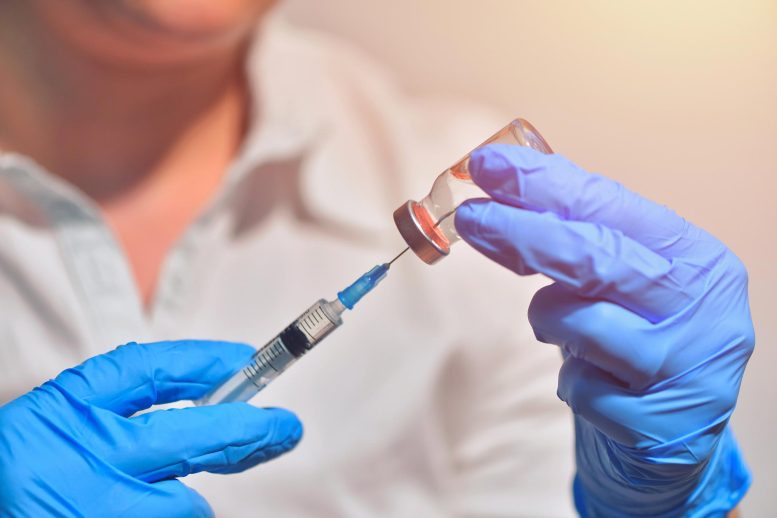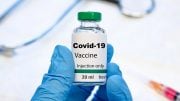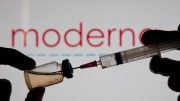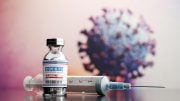
Vaccines are a vital tool in public health, protecting individuals and communities from serious and potentially deadly diseases. They work by introducing a small, safe version of a disease-causing virus or bacteria into the body, triggering an immune response. This response results in the production of antibodies, which can then recognize and attack the real disease-causing agent if it is encountered in the future.
Vaccines are highly effective at protecting against infectious diseases, but not everyone responds equally well to them. There are various factors that can affect a person’s immune response to vaccination, including specific biomarkers within the immune system. However, it has not previously been clear whether these factors are consistent across all types of vaccines.
A recent meta-analysis published in Nature Immunology has shed light on the biological reasons why some people’s immune systems respond differently to vaccinations. These findings have significant implications for the development and distribution of vaccines globally.
As part of a series of studies for The Human Immunology Project Consortium (HIPC), a network of national research institutions studying the range of responses to different infections and vaccinations, Emory University researchers analyzed the molecular characteristics of 820 healthy young adults who were immunized with 13 different vaccines to identify specific biomarkers that generate antibody response to vaccines.
The participants were separated into three endotypes, or groups with a common gene expression, based on the level of inflammatory response prior to vaccination — a high-inflammatory group, a low-inflammatory group, and a mid-inflammatory group. After studying the immunological changes that occurred in participants following vaccination, researchers found the group that had the highest levels of inflammation prior to the vaccine had the strongest antibody response.
“We were surprised because inflammation is usually depicted as something that is bad,” says Slim Fourati, Ph.D., bioinformatic research associate at Emory University and first author on the paper. “These data indicate that some types of inflammation can actually foster a stronger response from a vaccine.”
Fourati, Dr. Rafick-Pierre Sekaly, professor and senior author of the paper, and the HIPC team identified specific biomarkers among this group and cellular features that characterized the pre-vaccination inflammatory signature, information that can be used to predict how well an individual will respond to a vaccine.
“With the knowledge we now have about what characteristics of the immune system enable a more robust response, vaccines can be tailored to induce this response and maximize their effectiveness,” says Fourati. “But we still have more questions to answer.”
More research is needed to determine the cause of this inflammation in otherwise healthy adults. Additionally, Fourati suggests future studies should look at how these biomarkers facilitate vaccine protection in older age groups and among populations who are immunocompromised.
Published simultaneously with three other HIPC studies by researchers at Yale’s School of Medicine, Stanford University, University of Cincinnati, Harvard Medical School, and Columbia University Medical Center, these findings can serve to improve vaccine response across all individuals. A better understanding of how various pre-vaccine immune states impact antibody responses opens the possibility of altering these states in more vulnerable individuals. For example, scientists may give patients predicted to have a weaker immune response an adjuvant with the vaccine to trigger the inflammatory genes associated with greater protection.
This work will help enable improved, more efficient clinical trials for the development of new vaccines.
Reference: “Pan-vaccine analysis reveals innate immune endotypes predictive of antibody responses to vaccination” by Slim Fourati, Lewis E. Tomalin, Matthew P. Mulè, Daniel G. Chawla, Bram Gerritsen, Dmitry Rychkov, Evan Henrich, Helen E. R. Miller, Thomas Hagan, Joann Diray-Arce, Patrick Dunn, The Human Immunology Project Consortium (HIPC), Ofer Levy, Raphael Gottardo, Minnie M. Sarwal, John S. Tsang, Mayte Suárez-Fariñas, Bali Pulendran, Steven H. Kleinstein and Rafick-Pierre Sékaly, 31 October 2022, Nature Immunology.
DOI: 10.1038/s41590-022-01329-5
The HIPC program was established in 2010, renewed in 2015 and 2021, by the NIAID Division of Allergy, Immunology, and Transplantation.









Because even though we are very alike, every human is unique, thats why we are so resilient. Just how the brain and body can adapt to so many “errors” and still make a fully functional human being is mind blowing. Try that with an AI 😂